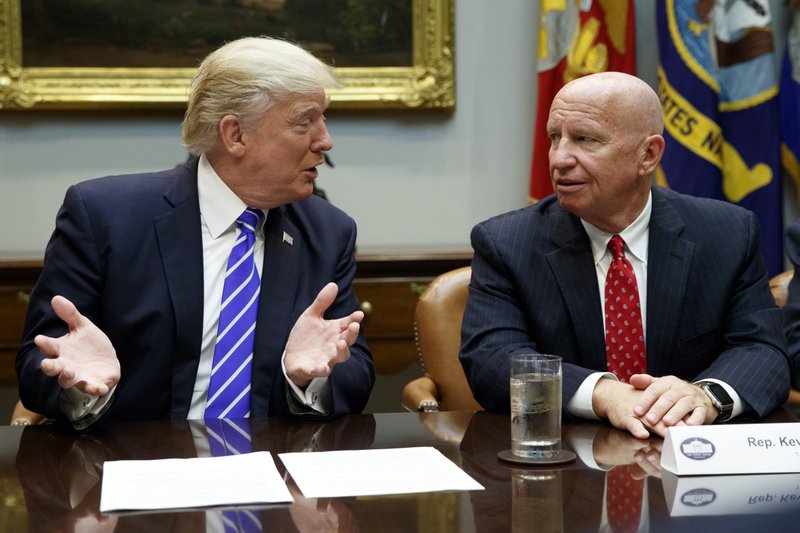WASHINGTON (AP) — House Republicans are focusing squarely on tax cuts rather than deficit discipline as they look to shoehorn a GOP budget plan through the House.
Passage of the $4 trillion budget measure on Thursday would pave the way for Republicans controlling Washington to pass a 10-year, $1.5 trillion tax cut measure later this year that’s the highest priority of President Donald Trump and his allies on Capitol Hill.
But GOP leaders were scrambling to overcome pockets of resistance to the measure from hard-right Republicans unhappy about deficits and lawmakers from New York and New Jersey who fear the subsequent tax bill would take away a deduction for state and local taxes that’s especially valuable to their constituents.
“This is a big issue and it has to be resolved,” said Rep. Tom MacArthur, R-N.J., who supports the deduction.
Ways and Means Committee Chairman Kevin Brady says he’ll schedule a panel debate and vote once the budget plan is safely passed, and much of the buzz in the Capitol concerned a flurry of horse trading as Republicans struggled to find ways to raise revenues to help finance cuts to individual and corporate tax rates. The goal is a full rewrite of the inefficient, loophole-laden tax code in hopes of lower rates for corporations and other businesses and a spurt of economic growth.
Brady, for instance, told reporters on Wednesday morning that he’s still looking at curtailing tax-free deposits in 401(k) retirement accounts, a move that could raise revenue in the near term as retirement savings shift to Roth-style accounts that are funded with after-tax earnings. Rep. Carlos Curbelo, R-Fla., said the move would help expand a tax credit in which the government contributes to retirement accounts for low- and middle-income taxpayers.
Trump says he opposes curbing 401(k) donations, however, which tossed a monkey wrench into the process.
“The president will get much of what he wants I think in tax reform, but we are a co-equal branch” said Sen. Pat Toomey, R-Pa. “And we’re going to write it.”
Key decisions about tax brackets, including a new bracket for high-income earners, remain up in the air. Outcomes on other provisions are unsettled as well, lending a sense of chaos as GOP leaders rush to fulfill a goal of passing the measure through the House before Thanksgiving.
“To do tax reform, you need money. And right now, even as we speak, they appear to be going wobbly on some of the issues they’ve raised with great certainty in previous weeks,” said top Ways and Means panel Democrat Richard Neal of Massachusetts. “They’ve got a revenue problem, a real revenue problem. And you have to make some dramatic changes to benefits that people across America have come to expect and enjoy.”
Republicans view passage of the tax measure as a career-defining dream, and its importance has only grown in the wake of the party’s debacle on health care. But the tax plan’s popularity is not a given with voters.
An Associated Press-NORC poll released Wednesday found most Americans saying Trump’s tax plan would benefit the wealthy and corporations, and less than half believing his message that “massive tax cuts” would help middle-class workers.
First comes action on the GOP budget plan, which under Washington’s arcane rules is nonbinding but would set up special procedures to pass follow-up tax legislation without the threat of a filibuster by Senate Democrats.
The tax cuts would add up to $1.5 trillion to the deficit over the coming decade, however, as Republicans have shelved fears about the growing budget deficit in favor of a once-in-a-generation opportunity to rewrite tax laws.
AP

